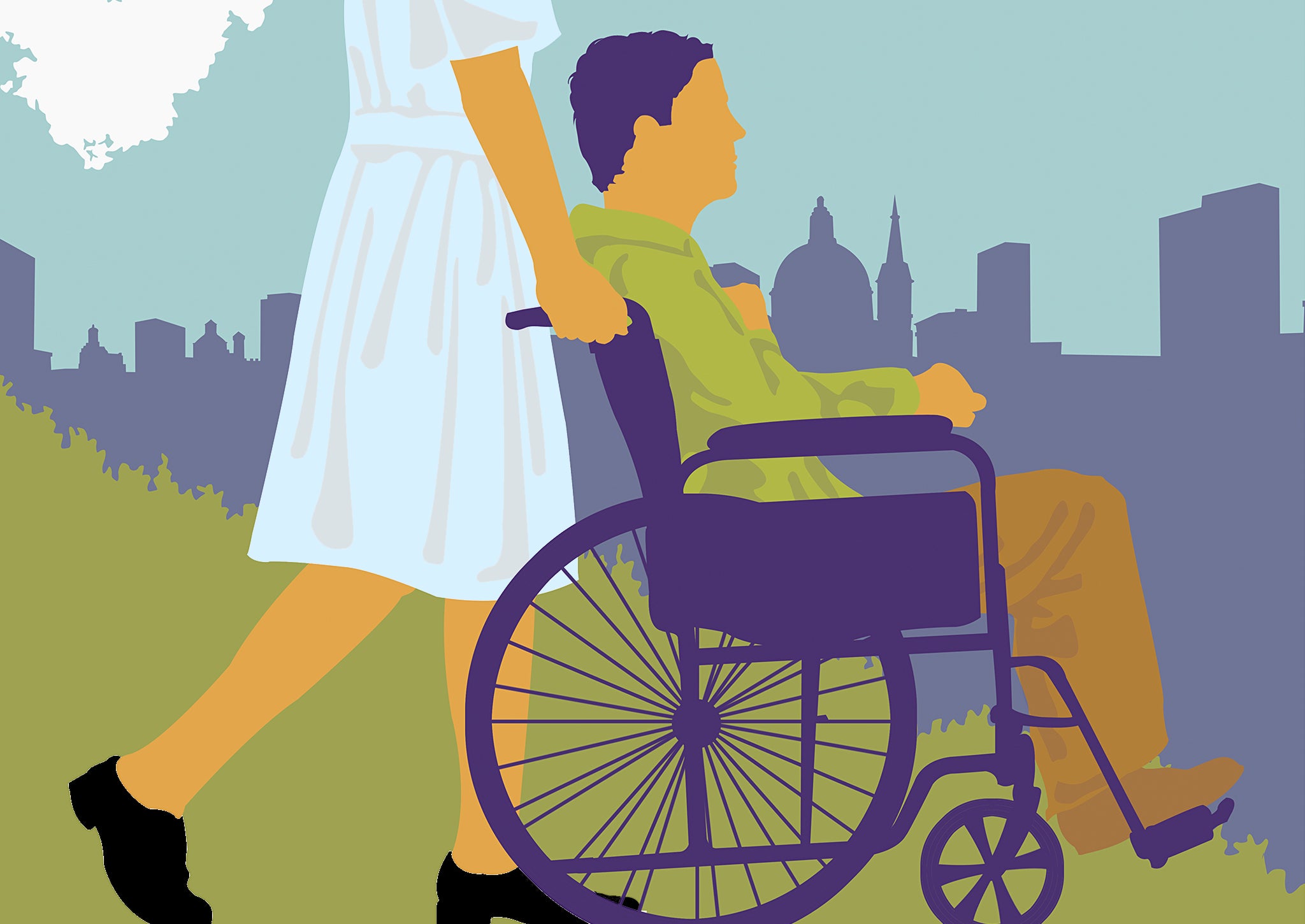NHS backs scheme to double health service volunteers and help stretched staff
Volunteers must not 'replace previously paid jobs' lost to cuts, Labour and unions warn

Your support helps us to tell the story
From reproductive rights to climate change to Big Tech, The Independent is on the ground when the story is developing. Whether it's investigating the financials of Elon Musk's pro-Trump PAC or producing our latest documentary, 'The A Word', which shines a light on the American women fighting for reproductive rights, we know how important it is to parse out the facts from the messaging.
At such a critical moment in US history, we need reporters on the ground. Your donation allows us to keep sending journalists to speak to both sides of the story.
The Independent is trusted by Americans across the entire political spectrum. And unlike many other quality news outlets, we choose not to lock Americans out of our reporting and analysis with paywalls. We believe quality journalism should be available to everyone, paid for by those who can afford it.
Your support makes all the difference.Twelve NHS hospitals are partnering with a new organisation aiming to double the number of volunteers in the NHS who can take on non-clinical roles in hospitals to assist stretched staff.
HelpForce is working on ways hospitals can more formally establish roles assisting patients at meal times, or with hospital transport to make volunteers a more established part of the wider NHS team.
The work has been backed by health service chiefs, including NHS England chief executive Simon Stevens, and voluntary sector groups as a way to support patients “without additional burden on staff”.
However trade unions have warned that this must not happen at the expense of paid roles as the NHS and local authorities struggle to balance budgets.
A report last month by the Equality and Human Rights Commission said that NHS caps on spending for home care services potentially breached human rights.
This is because patients would be left "interned" in care homes when NHS budgets no longer stretch to cover their care at home.
Acute NHS Hospital Trusts across the country are already looking to develop new volunteer roles.
This includes work at Chelsea & Westminster Hospital NHS Foundation Trust which is looking to deploy on-call “bleep volunteers” who can pick up tasks throughout the day and help with discharge at one of its units.
Mealtime and mobility assistants at University Hospitals Southampton NHS Foundation Trust could also provide a “befriending service” for patients often living in isolation.
A report by HelpForce earlier this year found that each NHS Trust already has nearly 500 volunteers working in various roles across their organisation, amounting to 78,000 volunteers in all.
Roles like mealtime assistants are evidence-backed, showing patients eat better, leading to better nutrition overall and more time for nurses and doctors to take on other roles.
HelpForce says it wants to “double” the number of volunteers in the NHS.
Simon Stevens said that the time given by volunteers across the sector is “one important expression of public support for the NHS, our patients and staff”.
“That’s why we are working with Helpforce to catalyse new ways in which this precious community resource can be harnessed more widely, alongside the brilliant frontline staff of the health service,” he added.
While Janet Davies, chief executive and general secretary of the Royal College of Nursing said that volunteers currently work “at arm’s length” from nurses and other staff.
“The development of properly co-ordinated staff-volunteer teams means we will be able to give vulnerable patients extra support when they need it without increasing the burden on our staff.”
Jonathan Ashworth MP, Labour’s shadow Health Secretary, said: “Volunteers play a crucial part in our health service offering their time, help and care to thousands of patients. It’s wonderful to see so many people deeply passionate about our National Health Service."
But he cautioned that this could not be a long-term solution or a replacement for "the expertise of fully trained staff", saying: "Volunteers are not the solution to the fundamental underfunding of our health service and poor workforce planning, which has left us short of 10,000 GPs, 3,500 midwives and 36,000 nurses. Patient safety must remain the central concern and tasks undertaken by volunteers must not replace the expertise of fully trained staff.”
Sarah Gorton, head of health at trade union Unison, said: “The principle of volunteering is a good one, fostering community spirit and shared values in society.
"But it's important that volunteers bring added value, and don't replace paid staff."
Join our commenting forum
Join thought-provoking conversations, follow other Independent readers and see their replies
Comments